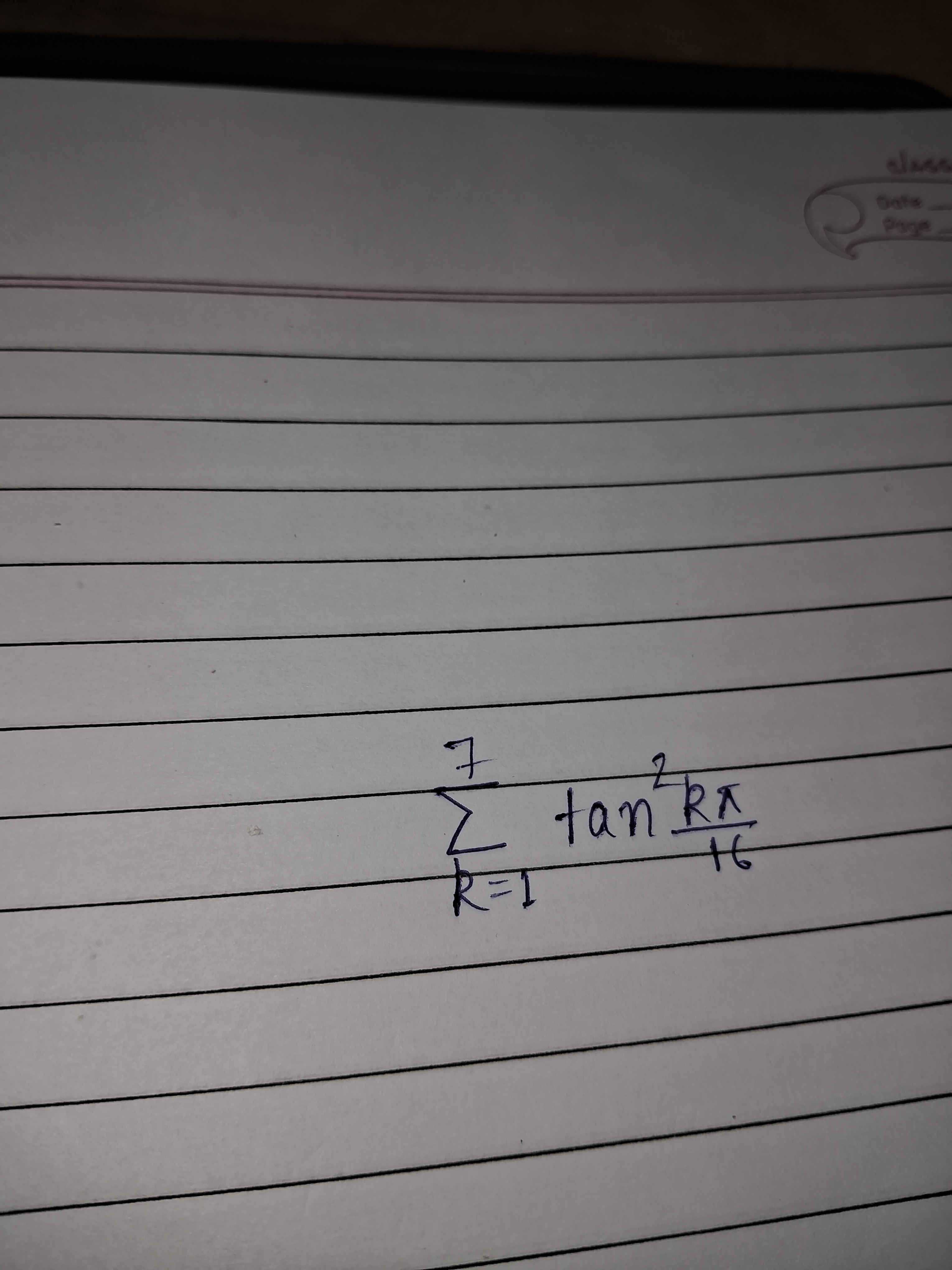Question
Question: $\sum_{R=1}^{7} \tan^2\frac{R\pi}{16}$...
∑R=17tan216Rπ

35
120
7
16
35
Solution
We want to evaluate the sum S=∑R=17tan216Rπ.
We can use the identity tan2θ=1+cos(2θ)1−cos(2θ). Let S=∑R=171+cos(2⋅16Rπ)1−cos(2⋅16Rπ)=∑R=171+cos(8Rπ)1−cos(8Rπ).
Let xR=cos(8Rπ). The sum becomes: S=∑R=171+xR1−xR
The values of xR for R=1,2,…,7 are: x1=cos(8π) x2=cos(82π)=cos(4π)=21 x3=cos(83π) x4=cos(84π)=cos(2π)=0 x5=cos(85π)=cos(π−83π)=−cos(83π)=−x3 x6=cos(86π)=cos(43π)=−21=−x2 x7=cos(87π)=cos(π−8π)=−cos(8π)=−x1
The sum can be written as: S=1+x11−x1+1+x21−x2+1+x31−x3+1+x41−x4+1+x51−x5+1+x61−x6+1+x71−x7 S=1+x11−x1+1+x21−x2+1+x31−x3+1+01−0+1+(−x3)1−(−x3)+1+(−x2)1−(−x2)+1+(−x1)1−(−x1) S=1+x11−x1+1+x21−x2+1+x31−x3+1+1−x31+x3+1−x21+x2+1−x11+x1
Group terms: S=(1+x11−x1+1−x11+x1)+(1+x21−x2+1−x21+x2)+(1+x31−x3+1−x31+x3)+1
Consider the general term 1+x1−x+1−x1+x=(1+x)(1−x)(1−x)2+(1+x)2=1−x21−2x+x2+1+2x+x2=1−x22+2x2.
For x2=21, x22=21. 1−x222+2x22=1−212+2(21)=212+1=1/23=6.
For x1=cos(8π), x12=cos2(8π)=21+cos(4π)=21+1/2=222+1. 1−x12=1−222+1=2222−(2+1)=222−1. 1−x122+2x12=21−x121+x12=2222−11+222+1=2222−12222+2+1=22−132+1 =2(2−1)(2+1)(32+1)(2+1)=22−16+32+2+1=2(7+42)=14+82.
For x3=cos(83π), x32=cos2(83π)=21+cos(43π)=21−1/2=222−1. 1−x32=1−222−1=2222−(2−1)=222+1. 1−x322+2x32=21−x321+x32=2222+11+222−1=2222+12222+2−1=22+132−1 =2(2+1)(2−1)(32−1)(2−1)=22−16−32−2+1=2(7−42)=14−82.
Substituting these values back into the sum: S=(14+82)+6+(14−82)+1=14+6+14+1=35.
Alternatively, we can use the formula for the sum of tan2 of angles in an arithmetic progression. For n=2m, the sum ∑k=1m−1tan2(nkπ)=(1n)(3n). In this problem, n=16, so 2m=16, which means m=8. The sum required is ∑R=17tan216Rπ. This corresponds to the formula with m−1=7. So, the sum is (116)(316). (316)=3×2×116×15×14=8×5×14=40×14=560. (116)=16. The sum is 16560=8280=4140=35.
